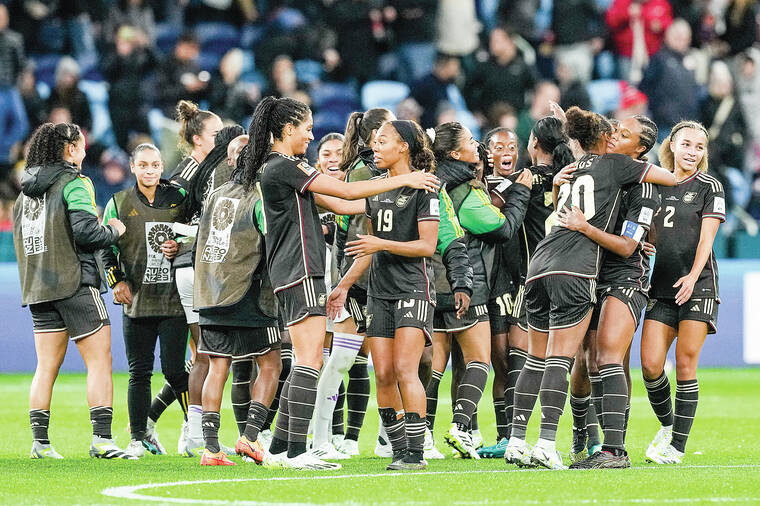SYDNEY — The underdogs are rising up at the Women’s World Cup.
Jamaica’s 0-0 draw with one of the tournament favorites France on Sunday was the latest evidence the gap is closing in international soccer.
There were enough examples of that during the men’s World Cup in Qatar last year with Saudi Arabia beating eventual champion Argentina, while Morocco became the first African team to advance to the semifinals.
“Smaller countries are getting that understanding. We might not have the resources the bigger countries do in terms of equipment and traveling and games, but I think there’s an understanding there with coaches and technical staff and everything that our preparation is a little bit better all around,” said Jamaica coach Lorne Donaldson.
“Once upon a time the US by far was very, very dominant and you can just see the gap is closing. I think the smaller nations are jumping on the bandwagon and saying, ‘We can do this too.’”
France coach Hervé Renard, who led Saudi Arabia’s men to that unforgettable win against Lionel Messi’s Argentina, agrees.
“The French are used to having the upper hand during the opening games, but this is something that is going to change because things are getting a lot closer,” he said.
While that goalless draw was one of the most surprising results of the tournament so far, it followed a growing pattern at this World Cup, co-hosted by Australia and New Zealand.
New Zealand upset Ada Hegeberg’s Norway with a 1-0 win in the opening match, while Australia struggled to see off debutant Ireland and needed a penalty to seal a win by the same score.
European champion England beat another debutant Haiti 1-0 and again needed a penalty to break the deadlock.
Olympic champion Canada was held by 0-0 by Nigeria.
One reason why the traditionally smaller nations are providing such competition for their bigger rivals is the undoubted quality they now boast.
Khadija Shaw, the Manchester City forward, was outstanding for Jamaica and will be a big loss when her team faces Panama on Saturday, after picking up a red card late in the game against France.
Haiti’s 19-year-old forward Melchie Dumornay looks set to become a global star.
“The players are developing,” said Donaldson. “They are getting a chance, some of these players, to go and play in the top leagues and they are taking it.”
While upsets are becoming more commonplace in international soccer, it remains to be seen if one of the underdogs can go all the way at a major tournament.
The men’s World Cup final ended up with Messi’s Argentina facing off against then-defending champion France with Kylian Mbappe leading its attack.
The US is aiming for a three-peat at the Women’s World Cup and is favorite to become the first nation to do so.
England and Australia were pushed close, but are still well-placed to advance from the group stages after winning their opening games. Both will be expected to improve – especially Australia if star forward Sam Kerr can recover from a calf injury.
And Renard, who has won two Africa Cup of Nations tournaments, has no doubts about France’s ability to build from a disappointing start.
“I’m satisfied with the mindset of my girls,” he said. “They showed fighting spirit and this will be very useful for us in what comes next.
“I think we need to keep a cool head. I have full faith in my girls and this is how I tend to function. We are going to move forward all together and we are on the right track.”

